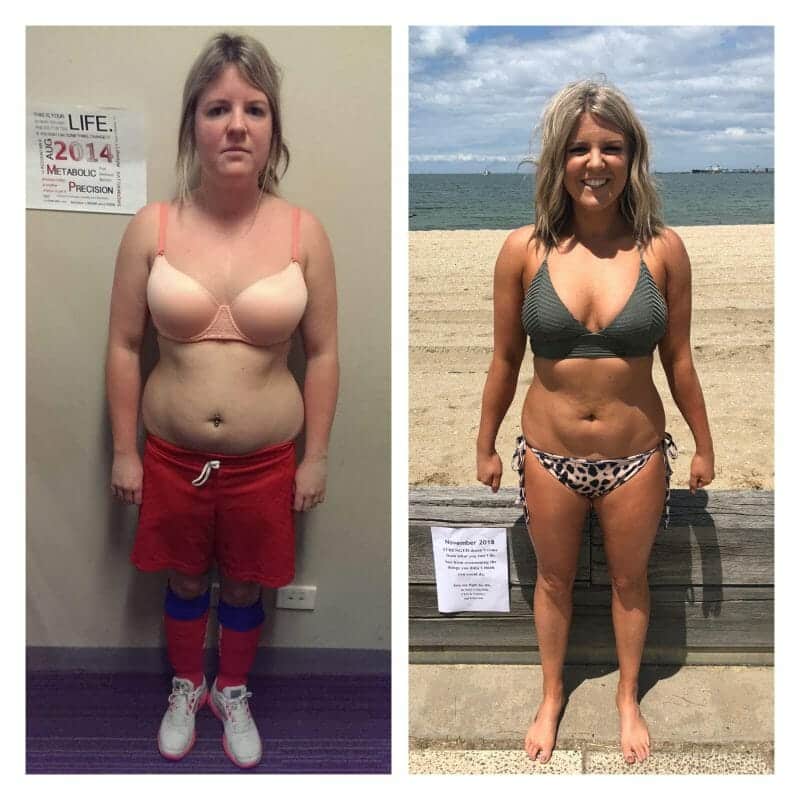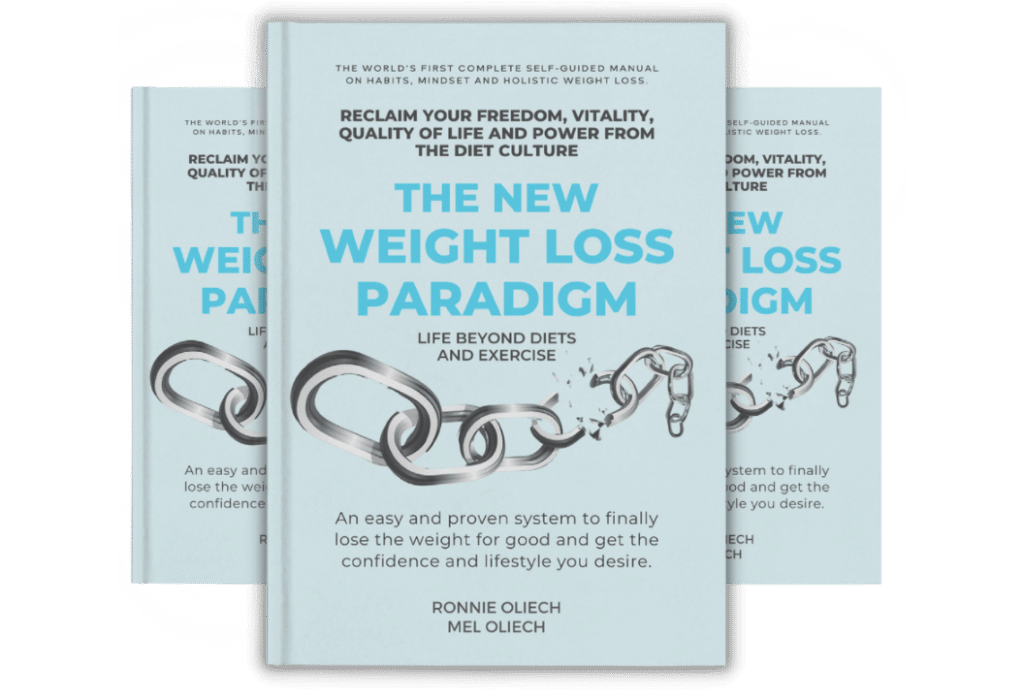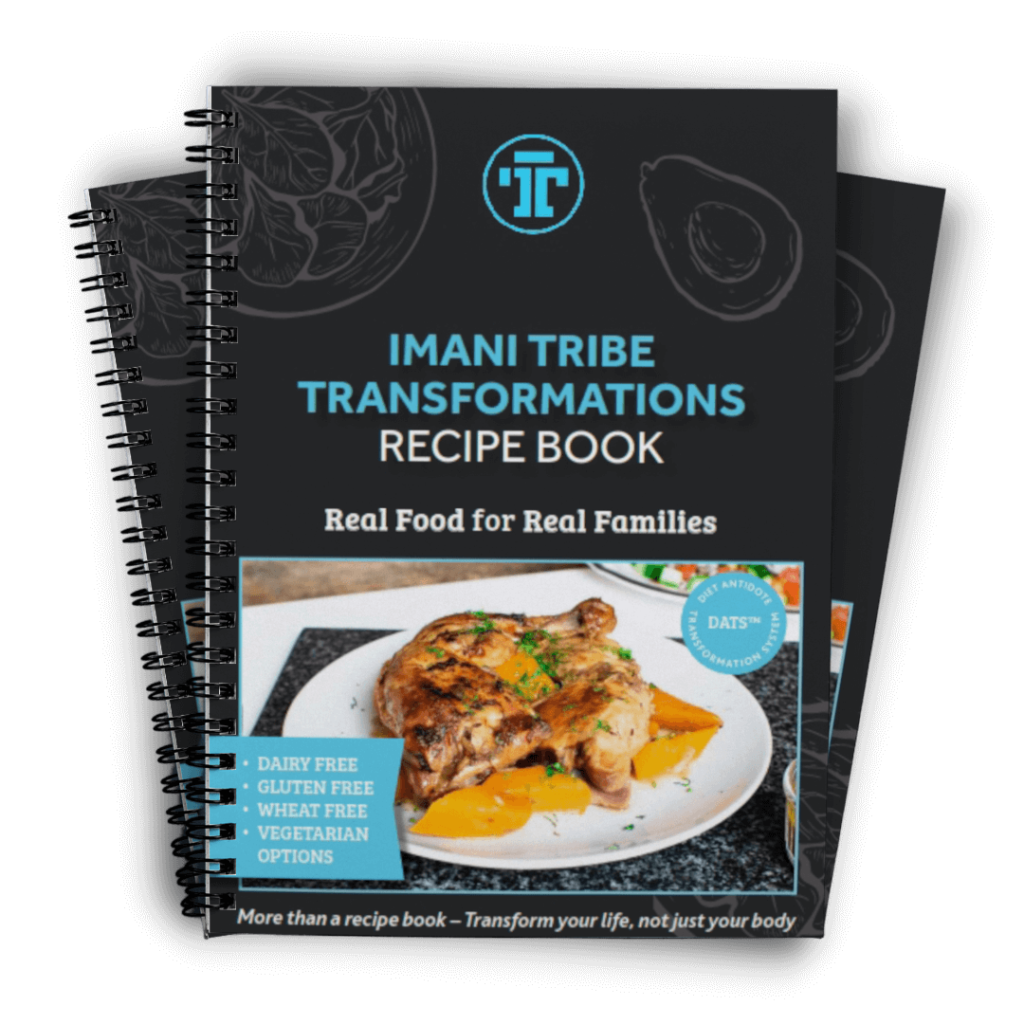The fitness industry and the media would have you believe that real weight loss is simply about changing what you eat and how you move. In other words, making sure that you burn more calories than you consume, which will lead to a calorie deficit and therefore weight loss.
While this is true on one level, there’s a whole other piece of the puzzle that many people miss.
The reason that this is missed, or glossed over is because this is where the real, hard work is done.
The other piece of the puzzle is about changing your habits.
Most people ‘go on a diet’ and undertake extra exercise to get rid of unwanted weight. But what usually happens is that once that person comes ‘off’ the diet, they will regain the weight they lost, plus more, because of the damage they do to their metabolism. This is just one of the problems that diets have.
However, even if the weight loss plan you’re following is sustainable for the long-term, and is scientifically backed (i.e. not a fad diet) and doesn’t mess with your metabolism, you’ll still struggle to succeed unless you address your habits.
Because weight loss is never about food or exercise.
It’s never about what you eat and how you move.
It’s about why you eat what you do, move how you do, and believe what you do.
Weight loss is always, always about your habits, which stem from fear.
And it’s these fear-based, self-sabotaging habits that lead you to become overweight in the first place.
This explains why so many people fail to lose weight, despite exercising and dieting for years. If you don’t believe us, read this.
What is a habit?
Habits are very strong, subconscious routines of behaviour that are repeated regularly. It doesn’t matter how strong our intentions are to lose weight (e.g. not eating chocolate, walking every day, cutting out alcohol, etc.), our habits will win out every single time.
Habits are powerful things that control our lives. They start out as conscious choices, but then turn into automatic behaviours, if we get some kind of reward for engaging in the behaviour.
Habits work in a loop which involves a cue, which triggers a routine, which results in a reward.
For example, a common habit that most people have is to eat something sweet at their mid-morning break, such as a biscuit or a muffin.
The cue in this case is your morning break. This triggers the routine of reaching for a sweet snack, which makes us feel good. Science now shows that when we eat sweet foods, our brain’s reward system is activated, releasing the feel-good hormone dopamine. Because we feel good when we eat these foods, we’ll continue to do so, even if it sabotages our weight loss.
However, it doesn’t matter what the reward is — whether it makes us feel safe, comforted or indulged. If we get a pay-off of some kind, we will continue to engage in the behaviour, even if it seems to take us away from our goals.
When our habits are based in fear (e.g. fear of being seen, not being liked, being judged, missing out, etc.), we will continue to engage in behaviours that we believe will keep us safe. However, letting fear control your life, will only keep you stuck and will actually prevent you from losing weight.
How to break a habit
You might think that the solution is to break this habit. But once a habit forms, it’s always there, so you’ll never ‘break’ it. However, you can learn new habits to replace the old one. The more you work on a new habit, and the stronger it becomes, the easier it is to replace the old habit.
The way to change a habit is to change the routine. In our morning coffee break example, instead of reaching for a sugary snack like biscuits or a muffin, you could eat some fresh berries instead. They will still satisfy your sweet craving (thereby providing you with the same reward), but they will be a much better food choice than biscuit or cake. You could also go for a 20-minute walk, read a book, or talk to a friend — other options that don’t involve food, but still leave you feeling good.
Thousands of habits
However, weight loss is much more than changing the habits around what you eat mid-morning. Every day, we engage in hundreds of habits. Many of these serve us well (e.g. brushing your teeth or putting on your seatbelt). However, many of them don’t. These are the ones that are based in fear, and may originate through religious beliefs, your parents’ beliefs, past events and experience, or other people’s opinions.
Habits aren’t just limited to your actions. They include your thoughts, beliefs and mindset.
A habit that leads to the development of multiple habits is called a keystone habit. The downside is that one over-arching habit can lead to dozens of other habits that will sabotage your weight loss. The good news is that when you change a keystone habit, all the other habits that were attached to it will no longer have power over you.
Let’s look at an example.
Paula suffers from low self-esteem. Because she doesn’t believe in herself and lacks confidence, she seeks validation from other people. This means she spends a lot of time pleasing other people and doing things for them at the expense of herself, because it makes her feel good about who she is. This lack of confidence and people-pleasing habit means that she often works late finishing off work for other people and her boss. This means she gets home late, by which time she’s often too tired to cook a healthy meal, so she grabs take-away or opts for quick, packaged food, despite knowing that it won’t help her lose weight, or meet the nutritional needs of her family.
When she does get home, she helps her kids with their homework and insists on making their lunches. After these chores, Paula needs some time to herself to wind down, and so often reaches for a glass or two of wine, or chocolate. By the time she gets to bed, it’s late, which means she fails to get enough sleep. This cycle of being tired only makes it harder for her to put in the effort to prepare healthy meals for herself, or get out of bed to go for a walk. Paula’s need for everyone to like her, so she’ll feel good about herself, means that she spends her weekends helping others, or volunteering at her kids’ school. Because she spends so much time doing things for others, she never has the time or energy to exercise on weekends, even though she knows she needs to, in order to lose weight. Paula desperately wants to lose weight to feel better about herself, but with her busy lifestyle she can’t see how she can possibly fit in regular exercise and time for weekly food prep that other people seem to do. Paula decides that one day, when her kids don’t need her so much, and she’s not so busy, she’ll find the time for herself.
Change one habit to change many
In the above example, you can see that Paula’s keystone habit is low-self-esteem and lack of confidence. Her fear is that she’s not good enough, so all the other behaviours she engages in are designed for her to feel good about who she is. No amount of willpower in the world can over-ride her keystone habit. However, once Paula is aware of her habit, and starts working on becoming more confident and growing her self-worth, she’ll find that she won’t engage in so many (if any) of the smaller habits that arose because she didn’t feel good about herself. (e.g. not having time to eat healthy food or exercise).
Instead, her new habit will be feeling confident and worthy. From that, she’ll develop a new set of habits, such as prioritising herself in order to have the life she really wants. She’ll begin saying ‘no’ to other people and ‘yes’ to herself. She’ll ensure she gets adequate sleep, and make time for healthy eating and regular exercise. In short, she’ll develop habits that will support her weight loss journey and enable her to maintain a healthy weight long-term.
How we help
As we mentioned above, weight loss is never about food and exercise. It’s about the habits that dictate our actions on a daily basis. When you develop habits that support weight loss, or changing your body shape, you’ll never have to rely on willpower again. You’ll never go on a diet again, and you’ll never struggle with your weight again.
Weight loss is never about food or exercise!
At Imani Tribe, we help clients overcome the habits that have been preventing them from gaining the body they desire. We also help them overcome the diet mindset, which is a very common habit for people who have used diets as a way to control their weight. First of all, we help them identify their keystone habit, and help them understand how this is influencing their weight. Then, we map out a personalised plan, complete with action steps, to help them overcome this habit and develop a new habit.
One of the key ways we help our clients overcome their habits is helping them overcome their fears. Because once fear no longer controls you, you’ll no longer engage in the self-sabotaging habits that arise out of running from your fears.
Of course, we also provide individual recommendations around nutrition and develop a personalised exercise program that will help our clients reach their goals. But our primary focus is on transformation — changing our clients’ mindset, beliefs and habits — so they can lose weight and keep it off.
Succeed at weight loss once and for all
If you’re sick of relying on willpower to lose weight, and need help in succeeding once and for all, we want to hear from you!
Through our total
Diet Antidote Transformation System (DATSTM Program) The Not-Diet-diet for people who are sick of diets and want more than a good body, we will help you overcome the habits that have led you to become overweight, or stuck in a diet cycle. Our program will help you lose weight and keep it off, without eating diet food, starving yourself or doing excessive amounts of exercise.


















